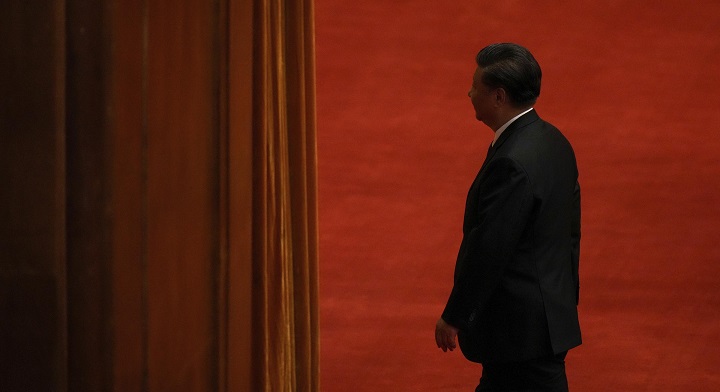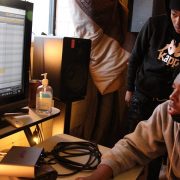
There is a general consensus among foreigners and informed China watchers that the trouble with China is actually the trouble with Xi Jinping. If Xi were to be removed as president, American troubles and the troubles many foreigners are experiencing with China would be over, or they could be easier to handle.
Maybe this is true, maybe it isn’t. What if China is like a very long and cumbersome truck that needs to turn right at a junction, but it has to first turn all the way to the left in order to have enough space to effectively turn right?
It is a theoretical possibility, but there is also a historical precedent with Mao Zedong.
Mao tried to open to the United States in the 1970s, at the height of the Cultural Revolution. That is, he opened to the paragon of China’s enemies, to all that he was fighting at home, and to foreign influence—while he was fighting the Americans in Vietnam with thousands of military advisors and billions in aid. Then he actually had US President Richard Nixon come to Beijing right in the middle of anti-imperialist demonstrations. That is, Mao Zedong felt comfortable opening to America—moving to the right on the political spectrum—when he was holding the country at the far left of the political spectrum.
Mao did that for many internal and external reasons, but the reasons may be different now. Nevertheless, Xi Jinping may find inspiration in Mao’s move. In fact, one can wonder whether the problems are with Xi or, conversely, Xi is not the problem, but the solution.
The first topic is: Who is against Xi in China? Those people were the ones who controlled China before him and largely created the present situation. Then China was extremely corrupt, divided, and inefficient, and the problems with America certainly didn’t start with Xi Jinping.
They started with the sense of haughtiness and pride after the 2008 financial crisis that made Chinese leadership believe China was rising and America was declining. Or perhaps they started around 2003 or 2004, when America was having growing difficulties and hitting bigger snags in Iraq and Afghanistan. Or perhaps it was when China was beginning to change its mind collectively about America in the 1990s, when a neoconservative movement was coalescing around books like China Can Say No.
In this sense, the present turn left led by Xi Jinping might be the start of an objective physics reaction. China certainly is very large and difficult to keep on track, and by turning too much to the left, the truck may topple. Or it has to turn to the right drastically to keep the balance. This is beside the will or the intentions of Xi Jinping.
Whatever the intentions of the president actually are, he is internally in a very difficult situation. In fact, besides the small group of loyal members, a large majority of officials that rule the country suffer under Xi because he has deprived them of their power and their money. Now they are simple instruments of the senior leadership.
They are no longer what they used to be for almost four decades: entrepreneurs of the power vested in them. In being entrepreneurs of this power, they were extremely efficient and enriched themselves, while also making their country wealthy. Now their only attitude and defense is to be passive, not to take initiative, and to drag their feet on orders that come from above. Ideologically their defense can be to criticize Xi Jinping when he goes to the left, saying he’s too leftist and he endangers China in doing so. Or conversely, they may criticize Xi Jinping if he goes to the right because it is selling out the party to foreigners.
Therefore, internally and also for the normal laws of political physics, the only way Xi can act is to go first left and then right, similar to the maneuver of Mao Zedong in the 1970s. This may not be Xi’s intention, but if he doesn’t do that the country could turn upside down.
The global landscape
Still, there is one more element that has to be taken into calculation. The general international conditions are different now compared to the 1970s.
Then, the United States was interested in turning to Mao although he was an ideological enemy.
America was thinking not in ideological terms but in geopolitical terms, and the goal was to strike back at the USSR and break the land continuity that went from Moscow to the tip of the Indochinese peninsula. At the time, the rapprochement with China would isolate North Vietnam, which was politically winning the war there.
Now China with Xi Jinping is no longer just an ideological enemy, it is also a geopolitical one.
Even if Xi were to turn to the right, at this point, the road for peaceful improvement of the relationship with the United States and so many other countries is still very difficult.
With or without Xi, now the movement of the United States and its allies is aimed at what China has become in these couple of decades, and dropping Xi may not be enough because of general distrust of the internal mechanisms of historical politics in China. In other words, in the world there is little or no trust for the Chinese Communist Party (CCP) steering China.
America and its allies are still debating and are uncertain about what to ultimately do with China. But China seems to be already preparing for a confrontation on multiple fronts. At all levels of the administration, China is issuing complicated sets of orders to strengthen the party organization and making it more responsive to directions coming from the top. This again can be effective in the short term, but in the middle and long term, it wears down the joints of the system.
Under constant pressure, officials who cannot exercise their own personal power, cannot enrich themselves with this exercise of power, and are pushed to consider their power just a service to the community may grow less and less willing to do so.
Even priests or monks, who choose to give up mundane life and its enjoyments in devotion to religion, can change their minds, become corrupt, and feel under strain. This strain is harsher for people who didn’t choose government service for devotion to a higher cause but as a way to bring wealth, power, and glory to themselves and their families. The solution can’t be to go back to the old corrupted ways, but it has to restructure the whole state organization by finding inspiration perhaps also in the failed attempt to separate politics and enterprise, something the 1987 party Congress wanted to do. Only, that attempt should be adapted to present times and conditions.
Without that, it may be hard to maintain control that is mainly, if not only, exercised based on regulations and fear of punishment, and without the second aspect of Chinese traditional politics, incentives. Incentives and punishments are, according to philosopher Hanfei zi, two handles of power of Chinese politics or of any politics.
人臣之情非必能愛其君也,為重利之故也。[1]
“The sentiment of people and officials is not necessarily to be able to yield affectionately to their ruler, but it is important that they are (led) by the reason of great interest.” [2]
However now officials seem motivated only through punishments. Their only incentive to carry on their duties is political survival. But this survival may not be enough motivation. The whole structure of power by which Xi Jinping is turning the country to the left is proving faulty and may crumble under more pressure.
There could be massive economic difficulties coming from the crisis in one of the main drivers of economic growth, real estate development, which accounts for about 30% of GDP. Internal debt is increasing at a higher pace than overall economic growth. Moreover, we have the diminishing returns on growth in infrastructure development and the stunted growth of internal private consumption, leaving development dependent only on foreign trade.
In fact, we have at the end of November massive growth in foreign trade, while overall growth of China’s economy is crawling. Exports rose 22% year-over-year and imports jumped 31.7% in November. But how can a country so large and with so many people carry on exporting so much?
In this situation, in a short time, if the trend is not reversed, there could be growing difficulties for the common people. They will be squeezed between lower growth expectations, less job advancement opportunities, lower pay rises, less chances to start a business, and a devaluation of their main investment assets, their homes.
Meanwhile, the state expands and middle-ranking officials are not eager to follow orders from the top leadership. This is the same chemistry that eventually led to protests in Hong Kong. Of course, China is not a single city, and possible demonstrations would be spread out in a huge country, and won’t have the impact of being concentrated in one place.
Furthermore, Chinese people are maybe brought up with more disciplined and under social and technological stricter control. It is also because a very efficient internal propaganda could turn popular attention against foreign forces that can be blamed for Chinese difficulties. Yes, the propaganda can say, China is experiencing problems and troubles, but it is all because foreigners and Americans are against us.
This will make foreign cooperation more difficult and grind on existing political and strategic issues. The propaganda is already gearing up on that, and it could increase in intensity in the next few months and years as internal troubles will be growing.
Re-orienting the world
On the other hand, the world is really reorienting itself. China’s “adversarial rise” has made Asia for the first time the political center of the globalized world. Before the discovery of America and the start of globalized trade based on the Americans in the 16th and 17th centuries, the whole world was only marginally interconnected, and each civilization center moved on itself. After the 16th century, the world grew around one center, Europe, then this moved to the Atlantic and now it is shifting economically to the Asia-Pacific.
With this adversarial swing of China, politics and military is also being moved to Asia. We are seeing the political and military rise of Asian powers besides China, and there will be the temptation for non-Asian countries to also become Asian powers or be marginalized. China in the 19th century, at the time of the Opium wars, was important for Western countries and their trade, but possibly not as important as now. Certainly, at the time China was no political or military threat. Now it is both.
China and its ruling CCP could be facing enormous, unprecedented internal and external pressures, while their power structure could be under enormous strain. In this situation, perhaps Xi could be an ally and not the enemy.
[1] See Hanfei zi 二柄 Two handles chapter
[2] For philology buffs: the crucial term here is 愛ai which is usually translated as “love”, like the modern term. In Classical China however the term is more like “to have loyalty with social responsibility for someone”. It was a crucial term in the Mohist Canon (4th century BC) that advocated 兼愛 jian’ai that it is usually translated as “universal love”, but it should be more like “binding socially responsible loyalty” to a community. The term 愛ai is used all over ancient 3rd century Chinese philosophy in this sense. Here Hanfei zi, the philosopher who inspired the massive reforms that led to Qin State’s strengthening, then seems to refer to a previous debate of the time and arguing that the social loyalty, advocated by some, for instance the Mohists, is not so important. Yes, it is useful but not ultimately decisive. What is most important is the self-interest of common people and officials. That is, even in ancient times, for the philosopher who helped shape Qin’s first unification, it was clear that discipline would not suffice in holding a state together. Self-interest, incentives should be taken into account. Now, of course it should be even more so.






“If Xi were to be removed as president, American troubles and the troubles many foreigners are experiencing with China would be over, or they could be easier to handle.”
What a joke!
The first concern must be to avoid war, especially in a time when much more needs to be invested in avoiding the worst of climate change and adapt to what cannot be avoided.
To that end China, and Russia, need to deter US and friends.
The culture and power structure of China and Russia will not allow an unintentional conflict with the USA, even under severe provocation. The only risk comes from the ‘allies’ of the US, such as Japan, Taiwan, or Kievan government. From the eyes of Chinese, the only way for Japan to escape from US slavery is to drive US to fight China, causing damages to both sides. And Taiwan DPP government may create such a trap that Japan will knowingly jumping in to force the hands of the US. The same is in Ukraine. It is up to the US to control their adventurous ‘allies’ who will force the US to fight for their own causes.